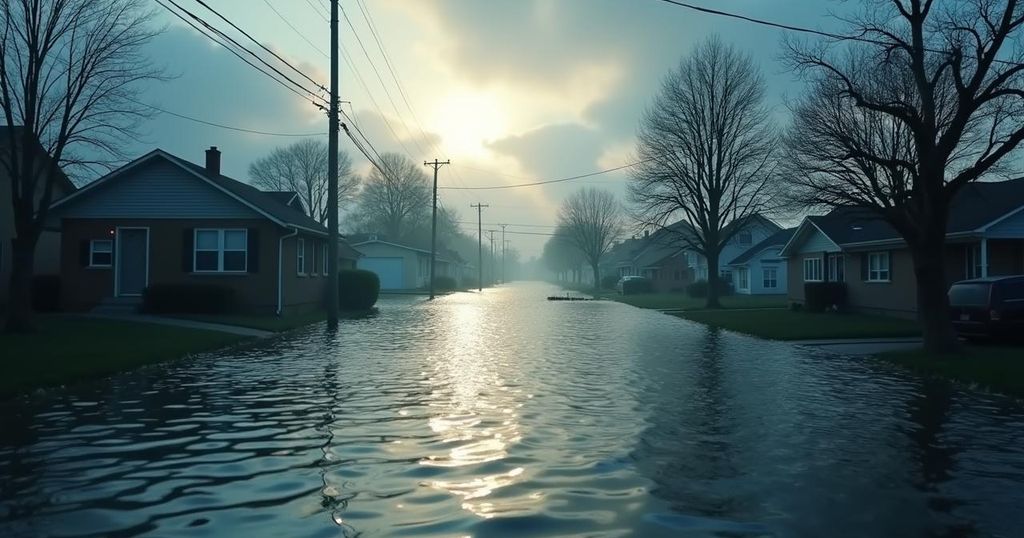FEMA Administrator Attributes Historic Flooding from Hurricane Helene to Climate Change
Deanne Criswell, the FEMA Administrator, attributed the severe impact of Hurricane Helene—marked by at least 88 deaths and historic flooding across southeastern states—to climate change. The administrator highlighted how warmer Gulf waters contribute to increased storm intensity and resultant water damage, shifting the focus from wind-related damage to flooding issues. The ongoing efforts by emergency responders are crucial as more casualties are expected to be discovered in affected areas hindered by significant infrastructural damage.
The Federal Emergency Management Agency (FEMA) Administrator, Deanne Criswell, recently attributed the catastrophic impact of Hurricane Helene, which has resulted in a death toll of at least 88 and widespread flooding from the Florida coast to the Appalachian Mountains, to climate change. During a segment on CBS’ “Face the Nation,” Criswell emphasized that the storm exhibited a slow development initially but intensified rapidly due to elevated sea temperatures in the Gulf. This temperature increase is contributing to a higher frequency of major storms than previously observed. Criswell elaborated that the warmer waters are leading to increased storm surges and rainfall as the storms progress northward, stating, “In the past, when we would look at damage from hurricanes, it was primarily wind damage, with some water damage. But now we’re seeing so much more water damage. And I think that is a result of the warm waters, which is a result of climate change.” The administrator noted that significant impacts have been felt across multiple states, including Florida, Georgia, South Carolina, North Carolina, and Tennessee, where essential infrastructures, such as water systems, communication networks, and critical transportation routes have faced severe damage. For instance, Buncombe County in North Carolina reported at least 30 fatalities attributed to the storm’s effects. Governor Roy Cooper expressed concerns that additional casualties might be uncovered as emergency services access areas hindered by collapsed roads and extensive flooding. Criswell stated, “I do not know that anybody could be fully prepared for the amount of flooding and landslides that they are experiencing right now,” and reassured that FEMA teams are actively engaged in search and rescue efforts.
Hurricane Helene presented a formidable challenge for regions along the southeastern United States, primarily affecting states such as Florida, North Carolina, and parts of Georgia. The storm’s unprecedented flooding and related fatalities have prompted discussions surrounding the implications of climate change on the frequency and intensity of weather events. Climate change has been increasingly recognized as a contributing factor to the escalation of natural disasters, with warmer ocean temperatures prompting more extreme weather patterns and increased rainfall.
In conclusion, Hurricane Helene exemplifies the growing impacts of climate change on severe weather conditions. The storm’s historic flooding and rising death toll represent a significant concern for emergency management officials. Administrator Deanne Criswell emphasized the necessity of acknowledging climate change’s role in altering the dynamics of hurricanes, urging preparedness for increasingly severe weather phenomena in the future. As emergency workers continue to navigate the challenges presented by the storm, the importance of understanding the environmental factors at play becomes ever more evident.
Original Source: www.ibtimes.com




Post Comment